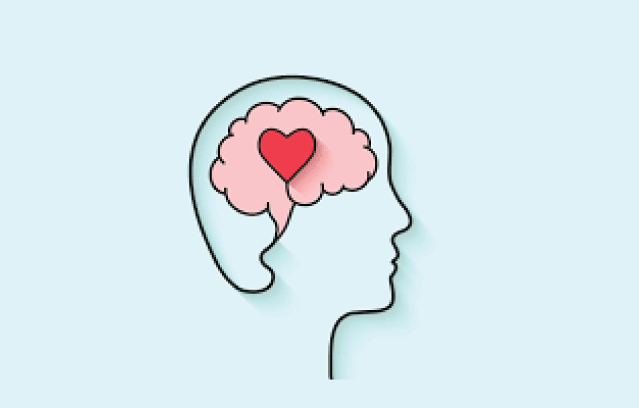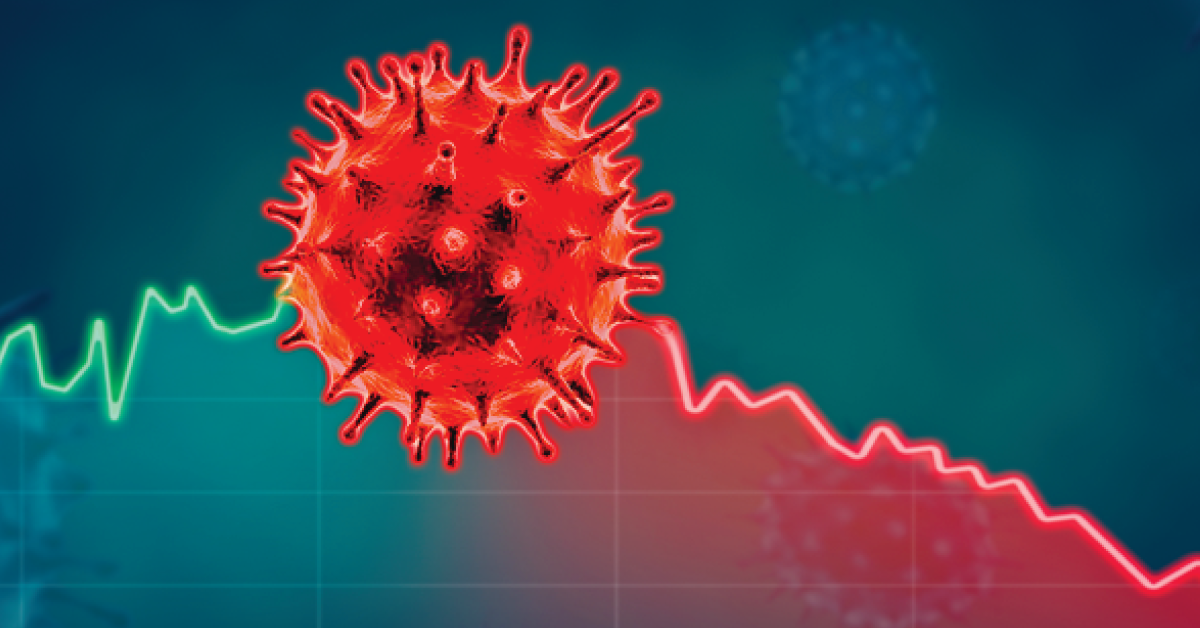
A wide variety of mental health conditions—disorders that impact your emotions, thinking, and behavior—are referred to as mental illnesses, sometimes known as mental health disorders. Depression, anxiety disorders, schizophrenia, eating disorders, and compulsive behaviors are a few examples of mental illnesses. Consulting a general physician for immediate treatment or counselling is a must in this. Patients who are dealing with the problem of mental health illness can also seek online consultation from the numerous general physicians present.
Cognitive, behavioral, and emotional health are all included in mental health. It all comes down to how people act, feel, and think. The absence of a mental condition is sometimes meant when the phrase “mental health” is used. A general physician tries to understand the root cause of mental health illness through different ways of counselling and then find the correct way for treatment.
Daily life, relationships, and physical health can all be impacted by mental health. This connection, nevertheless, also functions the other way around. Mental illness can be influenced by personal circumstances, social ties, and physical conditions. A family physician tries to trace down the history of family daily tasks and is very reliable for mental health illness treatment.
Maintaining one’s mental health might help them continue to enjoy life. This entails striking a balance between daily obligations, living activities, and endeavors to develop psychological resilience. You can also consult a psychologist in place of a general physician if you find the mental illness in an advanced stage.
An individual’s routine can be disturbed and their mental health affected by stress, depression, and anxiety. Even while medical professionals frequently refer to mental health, many psychological problems have physical causes, according to the general physician. You can also go to a family physician for more clarity on your cause of mental health illness.
What is meant by the terms “mental health” and “mental sickness” is explained in this article. We also go through the most prevalent varieties of mental illnesses, their early warning signs, and treatment options. The general physician will explain to you the causes of mental health illness and the ways to improve mental health condition. You must know the causes of mental health very well in order to get the treatment by a general physician or psychologist work faster. In this case, you should try to consult a family physician for the same. This will allow the person to coordinate more cordially and trace the root of the mental health disorder.
What is Mental Health?
According to the WHO, having a healthy mental state involves “more than just being free of mental illnesses or disabilities.” In order to achieve peak mental health, one must not only take care of acute illnesses but also maintain continuing wellbeing and happiness. You can also visit a general physician to discuss your mental health and to know about the stability. There are many online consultation campaigns held nowadays which promotes mental health as a normality.
The importance of protecting and regaining mental health on a personal level as well as at the level of a community and society is also emphasized. You must consult a family physician if you see any of the causes of mental health illness.
According to the National Alliance on Mental Illness, over 1 in 5 adults in many countries struggle with mental health issues on a yearly basis. According to the National Institute of Mental Health, 14.2 million adults (or roughly 5.6 percent) in the United States had a serious psychiatric disorder in 2020. (NIMH).
Elements that increase the risk of Deprived mental Health
Regardless of age, sex, financial level, or race, everyone is at some risk of getting a mental health issue. Mental diseases are one of the main causes of disability in much of the developed world.
A person’s mental health may be influenced by their social and financial situation, difficult childhood memories, biological traits, and underlying physical disorders. Many persons who suffer from mental health disorders simultaneously experience many conditions. A family physician can help a person more than a general physician. However, you can also seek online consultation.
The development of these diseases may be influenced by a number of circumstances, and it is crucial to remember that good mental health depends on a delicate balance of factors.
Persistent economic and social pressure
The risk of mental health disorders can be raised by having little resources or by being a member of an ethnic minority that is marginalized or targeted for persecution. According to Trusted Source, there are a number of socio-economic factors that contribute to mental health issues, such as poverty and living in a large city’s periphery. Referring to a family physician can help in mental health illness.
Additionally, the researchers discussed both flexible (modifiable) and rigid (non-modifiable) elements that influence the accessibility and effectiveness of mental health care for particular groups.
There are several modifiable risk factors for mental health issues.
- Socio-economic factors, such as whether or not there is employment in the neighbourhood and a person’s level of social interaction
- Housing affordability education
- Gender
Among the non-modifiable factors are:
- gender\age\ethnicity\nationality
Childhood hardships
A growing child’s mental and physical health are greatly impacted by traumatic childhood events such child abuse, parental illness, loss, and separation, according to reliable sources. This is one of the most prevalent causes of mental health illness. You should always try to connect to the family physician for more clarity on the causes of the mental health illness.
Additionally, there are links between unfavourable events and other psychotic diseases, including childhood maltreatment. Additionally, these events increase a person’s risk of developing post-traumatic stress disorder (PTSD).
Biological components
According to the NIMH, a person’s genetic family history may affect mental health.A person is more likely to develop mental health issues as a result of particular genes and gene variants that increase risk. These causes of mental health illness can be traced since childhood and thus it can be prevented from the primary stage by consulting a general physician.
However, a variety of additional factors also play a role in the emergence of these illnesses.
The presence of a gene linked to a mental health illness does not ensure that the disorder will manifest. Similar to those who lack associated genes or a family history of mental health disorders.
Types of mental health conditions
Due to traits they share, particular mental diseases are categorised. Here are a few examples of mental illnesses:
- Anxiety disorders
- mood problems
- psychotic disorders
Anxiety conditions
The most prevalent mental illness, according to the Anxiety and Depression Association, is anxiety disorders. There are many family physicians who have seen that anxiety since many years has led to mental health illness.
People who have these illnesses experience intense fear or anxiety in relation to particular things or circumstances. Most individuals with anxiety disorders make an effort to limit their exposure to anything that makes them anxious. You can seek online consultation help for identifying the type of mental health disorder that you have been facing.
Mood issues or Mood mental health disorder
Affective disorders and depressive disorders are other terms used to describe mood problems.
These illnesses cause severe mood swings in sufferers, which are typically either mania—a period of extreme vigour and joy—or sadness. Mood disorders include, for example:
- Major depression: A person with major depression has a persistently down mood and loses interest in formerly enjoyable activities and events (anhedonia). They may experience intense sadness over extended periods of time.
- Bipolar disorder: People who have this condition go through unusual variations in their mood, energy level, level of activity, and ability to go about their daily lives. Manic phases are times of extreme mood, while depression phases are times of extreme low mood.
Schizophrenia Disorder
The term “schizophrenia” is frequently used to describe a range of illnesses marked by severe psychotic symptoms. These are extremely difficult circumstances.
The NIMH reports that symptoms of schizophrenia often appear between the ages of 16 and 30. The person may also have trouble processing information and have scattered ideas.
Both negative and positive signs of schizophrenia exist. Delusions, thought disorders, and hallucinations are instances of positive symptoms, whereas withdrawal, a lack of drive, and an unsuitable or flat mood are examples of negative symptoms.
Early indications
No medical examination or scan can properly tell if someone has a mental disease. In this case, a family physician can help because he/she knows the nature of the patient very well. However, the following warning indicators of a mental health issue should be watched out for:
- Avoiding activities they would often like and retreating from friends, family, and coworkers
- Eating excessively or insufficiently sleeping too much or too little feeling hopeless
- Having constant fatigue and use mood-
- Using mood-altering drugs, such as alcohol and cigarettes, more often showing negative feelings
- Being perplexed
- Being unable to carry out daily duties, including cooking or getting to work, having recurring, persistent thoughts or memories that make them want to kill themselves or others physically, hearing voices, or experiencing delusions.
Preventive Care in mental health disorder
Self-care techniques can boost a person’s mental health by lowering their chance of getting sick, boosting their energy, and controlling their stress. To help someone start their self-care regimen, the NIMH provides numerous tips:
- Exercise on a regular basis: Exercise for 45 minutes, three to five times per week, can greatly enhance mental health.
- Maintain hydration and eat a balanced diet: Maintaining hydration and eating a good, balanced meal can help you feel energetic all day long.
- Attempt to get quality rest: Multiple studies were analysed in 2021, and the results showed that larger increases in sleep quality resulted in greater benefits in a person’s mental health.
- Exercise relaxation techniques: Journaling, breathing exercises, and wellness apps can all help you feel less stressed and be healthier overall.
Despite being widespread, mental health illnesses come in a range of severity. With the right care and access to resources, the majority of people are able to control their symptoms and enjoy active lives. If you see any of the symptoms, then you must consult your family physician or general physician for more help.
Others may not see rehabilitation as returning to their life as they were prior to developing a mental health problem, but rather as learning new coping mechanisms and gaining more control over their lives. You can seek online consultation also for getting any help related to mental health.

